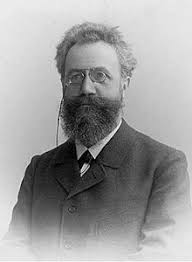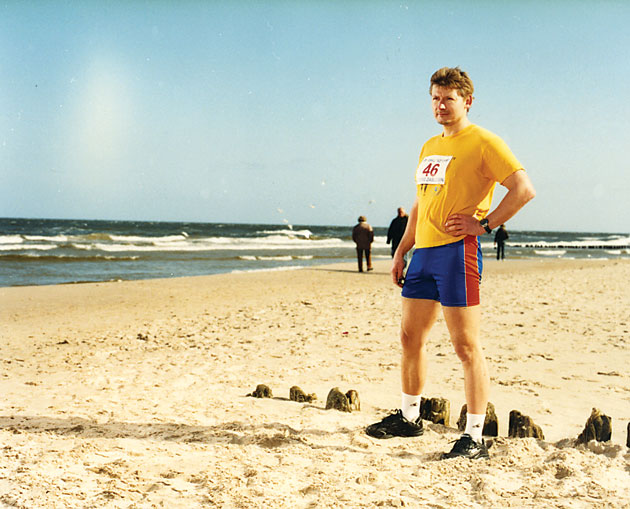This week we’re looking for the most powerful aspirin to cure one of the biggest English headaches…
I’m talking about: How to remember English words.
Let’s begin with a quick tour through the research. Just follow the orange umbrella…
1. Ebbinghaus — “You must review.”
This is Hermann Ebbinghaus.

Hermann was the first person to study memory.
He must have been a very popular man at the disco, because his hobby was inventing thousands of new words — bes dek fel gup huf jeik mek meun pon daus dor gim ke4k be4p bCn hes… — and then trying to remember them.
After he recovered from all the excitement, he discovered:
- Our memories are bad.
- Our memories improve if we review the information over many days (the opposite of what we all did in school, which was studying only on the night before the test).
2. Robert Bjork — “You must review at the right time.”
Next, we have the American, Robert Bjork.

Dr. Bjork’s big contribution was discovering that when we review the new information is key.
If you review too soon, that doesn’t help; it’s like going to the gym and lifting 5 lbs. dumbbells — too easy.
If you review too late, that doesn’t help either, because you’ve already forgotten it.
Instead, you must review at the exact moment when you’re just about to forget…
But when is that?
Unfortunately, Bjork, like most university professors, was interested in theories, not solutions.
The answer would have to wait another twenty years.
3. Piotr Wozniak – “This is the right time to review.”
Then in the 1980s, a smart and ambitious Polish university student had a personal problem he needed solving — how to remember English words quickly.

Wozniak used his background in mathematics and wrote an algorithm that correctly predicts the perfect moment to review new information, i.e. right before you start to forget it.
Next, he made a computer program using the algorithm and tried to get Silicon Valley money to turn his invention into a successful company.
But unfortunately, he was no Steve Jobs, and his program was too confusing for most people.
Fortunately for us, like a healthy heart taken from a dying patient, the algorithm is alive and well inside a user-friendly and free software program called Anki.
As we say in English, go ahead and take if for a spin.
Then tomorrow, I’ll tell you how to get the unpublished instructions for Anki.
You’ll need these if you want to use it correctly, avoid mistakes that will make your English worse, and save you tons of time.
